Stalin never had it so easy as Benjamin Netanyahu when it comes to getting a whole population to effortlessly swallow a pack of lies.
“Everything is against Jews. We have the right to defend ourselves. If Turkey sends a ship full of Muslim terrorists, it means that we have to stop them,” a resident of Tel Aviv tells Max Blumenthal during celebrations in support of the Mavi Marmara massacre. “It reminds us of the Holocaust.”
Another says, “It’s the first time we don’t need to kiss anyone’s ass. Not the United States, not the United Nations. We are on our own. We can do it. We did it — I don’t know — sixty years ago. We can do it again…”
Probably the most bewildering aspect of the Gaza flotilla affair has been the righteous indignation expressed by the Israeli government and people, writes Ilan Pappe, in Scotland’s Sunday Herald.
The nature of this response is not being fully reported in the UK press, but it includes official parades celebrating the heroism of the commandos who stormed the ship and demonstrations by schoolchildren giving their unequivocal support for the government against the new wave of anti-Semitism.
As someone who was born in Israel and went enthusiastically through the socialisation and indoctrination process until my mid-20s, this reaction is all too familiar. Understanding the root of this furious defensiveness is key to comprehending the principal obstacle for peace in Israel and Palestine. One can best define this barrier as the official and popular Jewish Israeli perception of the political and cultural reality around them.
A number of factors explain this phenomenon, but three are outstanding and they are interconnected. They form the mental infrastructure on which life in Israel as a Jewish Zionist individual is based, and one from which it is almost impossible to depart – as I know too well from personal experience.
The first and most important assumption is that what used to be historical Palestine is by sacred and irrefutable right the political, cultural and religious possession of the Jewish people represented by the Zionist movement and later the state of Israel.
Most of the Israelis, politicians and citizens alike, understand that this right can’t be fully realised. But although successive governments were pragmatic enough to accept the need to enter peace negotiations and strive for some sort of territorial compromise, the dream has not been forsaken. Far more important is the conception and representation of any pragmatic policy as an act of ultimate and unprecedented international generosity.
Any Palestinian, or for that matter international, dissatisfaction with every deal offered by Israel since 1948, has therefore been seen as insulting ingratitude in the face of an accommodating and enlightened policy of the “only democracy in the Middle East”. Now, imagine that the dissatisfaction is translated into an actual, and sometimes violent, struggle and you begin to understand the righteous fury. As schoolchildren, during military service and later as adult Israeli citizens, the only explanation we received for Arab or Palestinian responses was that our civilised behaviour was being met by barbarism and antagonism of the worst kind.
According to the hegemonic narrative in Israel there are two malicious forces at work. The first is the old familiar anti-Semitic impulse of the world at large, an infectious bug that supposedly affects everyone who comes into contact with Jews. According to this narrative, the modern and civilised Jews were rejected by the Palestinians simply because they were Jews; not for instance because they stole land and water up to 1948, expelled half of Palestine’s population in 1948 and imposed a brutal occupation on the West Bank, and lately an inhuman siege on the Gaza Strip. This also explains why military action seems the only resort: since the Palestinians are seen as bent on destroying Israel through some atavistic impulse, the only conceivable way of confronting them is through military might.
The second force is also an old-new phenomenon: an Islamic civilisation bent on destroying the Jews as a faith and a nation. Mainstream Israeli orientalists, supported by new conservative academics in the United States, helped to articulate this phobia as a scholarly truth. These fears, of course, cannot be sustained unless they are constantly nourished and manipulated.
From this stems the second feature relevant to a better understanding of the Israeli Jewish society. Israel is in a state of denial. Even in 2010, with all the alternative and international means of communication and information, most of the Israeli Jews are still fed daily by media that hides from them the realities of occupation, stagnation or discrimination. This is true about the ethnic cleansing that Israel committed in 1948, which made half of Palestine’s population refugees, destroyed half the Palestinian villages and towns, and left 80% of their homeland in Israeli hands. And it’s painfully clear that even before the apartheid walls and fences were built around the occupied territories, the average Israeli did not know, and could not care, about the 40 years of systematic abuses of civil and human rights of millions of people under the direct and indirect rule of their state.
Nor have they had access to honest reports about the suffering in the Gaza Strip over the past four years. In the same way, the information they received on the flotilla fits the image of a state attacked by the combined forces of the old anti-Semitism and the new Islamic Judacidal fanatics coming to destroy the state of Israel. (After all, why would they have sent the best commando elite in the world to face defenceless human rights activists?)
As a young historian in Israel during the 1980s, it was this denial that first attracted my attention. As an aspiring professional scholar I decided to study the 1948 events and what I found in the archives sent me on a journey away from Zionism. Unconvinced by the government’s official explanation for its assault on Lebanon in 1982 and its conduct in the first Intifada in 1987, I began to realise the magnitude of the fabrication and manipulation. I could no longer subscribe to an ideology which dehumanised the native Palestinians and which propelled policies of dispossession and destruction.
The price for my intellectual dissidence was foretold: condemnation and excommunication. In 2007 I left Israel and my job at Haifa University for a teaching position in the United Kingdom, where views that in Israel would be considered at best insane, and at worst as sheer treason, are shared by almost every decent person in the country, whether or not they have any direct connection to Israel and Palestine.
That chapter in my life – too complicated to describe here – forms the basis of my forthcoming book, Out Of The Frame, to be published this autumn. But in brief, it involved the transformation of someone who had been a regular and unremarkable Israeli Zionist, and it came about because of exposure to alternative information, close relationships with several Palestinians and post-graduate studies abroad in Britain.
My quest for an authentic history of events in the Middle East required a personal de-militarisation of the mind. Even now, in 2010, Israel is in many ways a settler Prussian state: a combination of colonialist policies with a high level of militarisation in all aspects of life. This is the third feature of the Jewish state that has to be understood if one wants to comprehend the Israeli response. It is manifested in the dominance of the army over political, cultural and economic life within Israel. Defence minister Ehud Barak was the commanding officer of Benjamin Netanyahu, the prime minister, in a military unit similar to the one that assaulted the flotilla. That background was profoundly significant in terms of the state’s Zionist response to what they and all the commando officers perceived as the most formidable and dangerous enemy.
You probably have to be born in Israel, as I was, and go through the whole process of socialisation and education – including serving in the army – to grasp the power of this militarist mentality and its dire consequences. And you need such a background to understand why the whole premise on which the international community’s approach to the Middle East is based, is utterly and disastrously wrong.
The international response is based on the assumption that more forthcoming Palestinian concessions and a continued dialogue with the Israeli political elite will produce a new reality on the ground. The official discourse in the West is that a very reasonable and attainable solution – the two states solution – is just around the corner if all sides would make one final effort. Such optimism is hopelessly misguided.
The only version of this solution that is acceptable to Israel is the one that both the tamed Palestine Authority in Ramallah and the more assertive Hamas in Gaza could never accept. It is an offer to imprison the Palestinians in stateless enclaves in return for ending their struggle. And thus even before one discusses either an alternative solution – one democratic state for all, which I myself support – or explores a more plausible two-states settlement, one has to transform fundamentally the Israeli official and public mindset. It is this mentality which is the principal barrier to a peaceful reconciliation within the fractured terrain of Israel and Palestine.
How can one change it? That is the biggest challenge for activists within Palestine and Israel, for Palestinians and their supporters abroad and for anyone in the world who cares about peace in the Middle East. What is needed is, firstly, recognition that the analysis put forward here is valid and acceptable. Only then can one discuss the prognosis.
It is difficult to expect people to revisit a history of more than 60 years in order to comprehend better why the present international agenda on Israel and Palestine is misguided and harmful. But one can surely expect politicians, political strategists and journalists to reappraise what has been euphemistically called the “peace process” ever since 1948. They need also to be reminded that what actually happened.
Since 1948, Palestinians have been struggling against the ethnic cleansing of Palestine. During that year, they lost 80% of their homeland and half of them were expelled. In 1967, they lost the remaining 20%. They were fragmented geographically and traumatised like no other people during the second half of the 20th century. And had it not been for the steadfastness of their national movement, the fragmentation would have enabled Israel to take over historical Palestine as a whole and push the Palestinians into oblivion.
Transforming a mindset is a long process of education and enlightenment. Against all the odds, some alternative groups within Israel have begun this long and winding road to salvation. But in the meantime Israeli policies, such as the blockade on Gaza, have to be stopped. They will not cease in response to feeble condemnations of the kind we heard last week, nor is the movement inside Israel strong enough to produce a change in the foreseeable future. The danger is not only the continued destruction of the Palestinians but a constant Israeli brinkmanship that could lead to a regional war, with dire consequences for the stability of the world as a whole.
In the past, the free world faced dangerous situations like that by taking firm actions such as the sanctions against South Africa and Serbia. Only sustained and serious pressure by Western governments on Israel will drive the message home that the strategy of force and the policy of oppression are not accepted morally or politically by the world to which Israel wants to belong.
The continued diplomacy of negotiations and “peace talks” enables the Israelis to pursue uninterruptedly the same strategies, and the longer this continues, the more difficult it will be to undo them. Now is the time to unite with the Arab and Muslim worlds in offering Israel a ticket to normality and acceptance in return for an unconditional departure from past ideologies and practices.
Removing the army from the lives of the oppressed Palestinians in the West Bank, lifting the blockade in Gaza and stopping the racist and discriminatory legislation against the Palestinians inside Israel, could be welcome steps towards peace.
It is also vital to discuss seriously and without ethnic prejudices the return of the Palestinian refugees in a way that would respect their basic right of repatriation and the chances for reconciliation in Israel and Palestine. Any political outfit that could promise these achievements should be endorsed, welcomed and implemented by the international community and the people who live between the river Jordan and the Mediterranean Sea.
And then the only flotillas making their way to Gaza would be those of tourists and pilgrims.
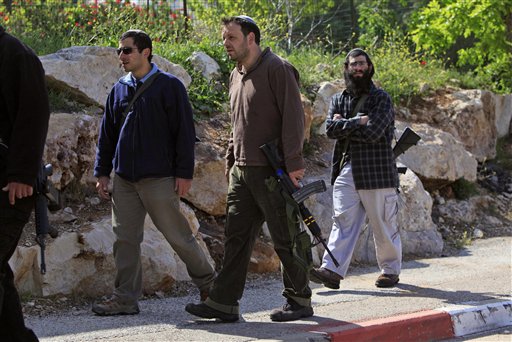
“Attacking settlers is a natural thing,” al-Rashk told Al-Hayat on Saturday, saying the “Zionist settlers are the occupation’s first reserve military force.”
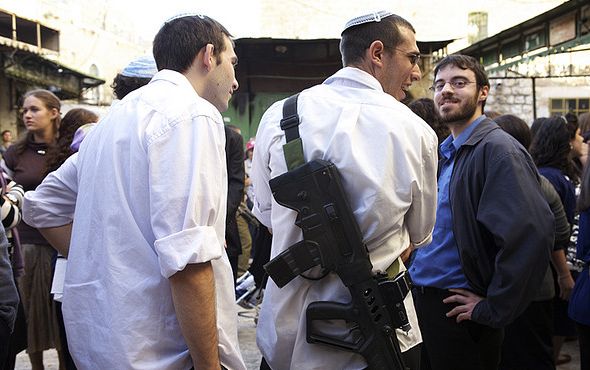

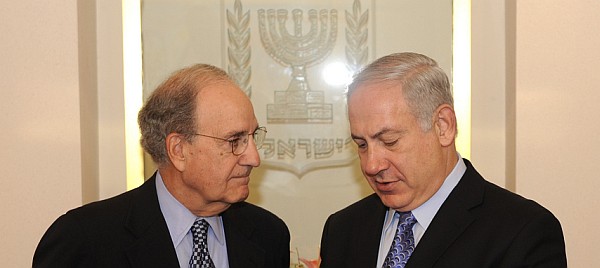
 It takes just a week to train young Israeli women in the latest form of remote killing.
It takes just a week to train young Israeli women in the latest form of remote killing. 
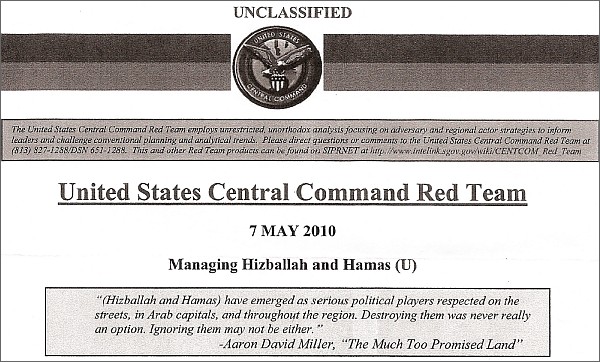
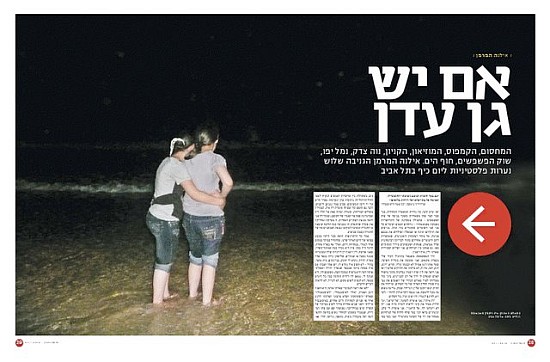
 The mafia-like power wielded by the ulta-secret
The mafia-like power wielded by the ulta-secret  Mario Levi, a member of the Turkish Jewish community, who spoke on June 2 about the bloody Israeli attack on a humanitarian aid flotilla, said they, “as the Jews of İstanbul, are in solidarity with Gazans,” adding that “[Recep Tayyip] Erdoğan gave an excellent statement. It must be acknowledged that his party has done better things compared to the social democrats and nationalists. I do not see anti-Semitic sentiments in Turkey. I am sympathetic to Israel, but I still regard Israeli Prime Minister [Benjamin] Netanyahu as a chauvinist, the country’s foreign minister as fascist and its defense minister as stupid.”
Mario Levi, a member of the Turkish Jewish community, who spoke on June 2 about the bloody Israeli attack on a humanitarian aid flotilla, said they, “as the Jews of İstanbul, are in solidarity with Gazans,” adding that “[Recep Tayyip] Erdoğan gave an excellent statement. It must be acknowledged that his party has done better things compared to the social democrats and nationalists. I do not see anti-Semitic sentiments in Turkey. I am sympathetic to Israel, but I still regard Israeli Prime Minister [Benjamin] Netanyahu as a chauvinist, the country’s foreign minister as fascist and its defense minister as stupid.”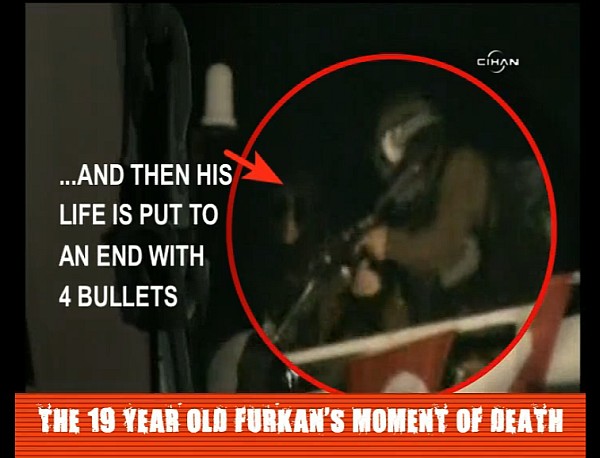
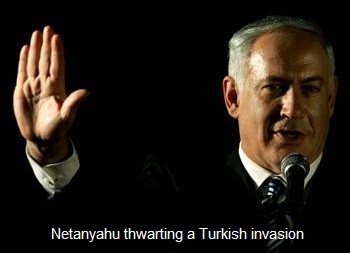 One of the lessons of state communism is that there is no better environment in which to control the way people think than one in which they believe they are free.
One of the lessons of state communism is that there is no better environment in which to control the way people think than one in which they believe they are free.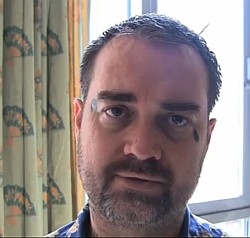 I remember being asked during the TJP Human Shield Action to Iraq if I was a pacifist, I responded with a quote from Gandhi by saying I am not a passive anything. To the contrary I believe in action, and I also believe in self-defence, 100%, without reservation. I would be incapable of standing by while a tyrant murders my family, and the attack on the Mavi Marmara was like an attack on my Palestinian family. I am proud to have stood shoulder to shoulder with those who refused to let a rogue Israeli military exert their will without a fight. And yes, we fought.
I remember being asked during the TJP Human Shield Action to Iraq if I was a pacifist, I responded with a quote from Gandhi by saying I am not a passive anything. To the contrary I believe in action, and I also believe in self-defence, 100%, without reservation. I would be incapable of standing by while a tyrant murders my family, and the attack on the Mavi Marmara was like an attack on my Palestinian family. I am proud to have stood shoulder to shoulder with those who refused to let a rogue Israeli military exert their will without a fight. And yes, we fought. While in Israeli custody I, along with everyone else was subjected to endless abuse and flagrant acts of disrespect. Women and elderly were physically and mentally assaulted. Access to food and water and toilets was denied. Dogs were used against us, we ourselves were treated like dogs. We were exposed to direct sun in stress positions while hand cuffed to the point of losing circulation of blood in our hands. We were lied to incessantly, in fact I am awed at the routineness and comfort in their ability to lie, it is remarkable really. We were abused in just about every way imaginable and I myself was beaten and choked to the point of blacking out… and I was beaten again while in my cell.
While in Israeli custody I, along with everyone else was subjected to endless abuse and flagrant acts of disrespect. Women and elderly were physically and mentally assaulted. Access to food and water and toilets was denied. Dogs were used against us, we ourselves were treated like dogs. We were exposed to direct sun in stress positions while hand cuffed to the point of losing circulation of blood in our hands. We were lied to incessantly, in fact I am awed at the routineness and comfort in their ability to lie, it is remarkable really. We were abused in just about every way imaginable and I myself was beaten and choked to the point of blacking out… and I was beaten again while in my cell.